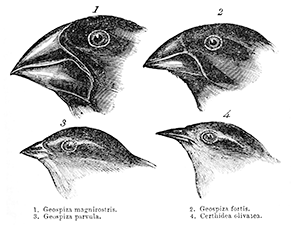Theistic Evolution: Integrating Faith and Scientific Understanding
Theistic evolution, also known as evolutionary creationism, is a philosophical and theological perspective that seeks to reconcile traditional belief in a divine creator with the scientific theory of evolution. Here, the conceptual framework of theistic evolution, its historical development, implications for both theology and science, and the primary criticisms it faces are presented.
Introduction
The relationship between science and religion has long been a subject of intellectual and cultural debate. Nowhere is this tension more visible than in discussions surrounding the origin and development of life. While evolutionary biology presents a naturalistic explanation for the diversity of life, many religious traditions assert that life is the product of divine creation. Theistic evolution offers a framework in which these seemingly opposing views can coexist.
Defining Theistic Evolution
Theistic evolution refers to the belief that God utilizes evolutionary processes to bring about biological complexity and diversity. Unlike deism, which views God as a distant initiator, or creationism, which often rejects scientific consensus, theistic evolution maintains that evolutionary mechanisms such as natural selection, genetic mutation, and common descent are fully compatible with belief in a purposeful, sovereign deity (Collins, 2006). In this model, science explains the mechanics of life’s development, while theology provides the metaphysical and moral framework for understanding purpose and meaning.
Historical and Intellectual Background
Theistic evolution is not a modern invention but has roots in 19th-century attempts to harmonize scientific discoveries with religious belief. One early advocate was Asa Gray, a Harvard botanist and devout Christian who supported Darwin’s theory of natural selection while affirming divine providence. In the 20th and 21st centuries, theistic evolution has gained more structured support, particularly through the work of scientists such as Francis Collins, former director of the National Institutes of Health and founder of the BioLogos Foundation. Collins (2006) argues that evolution is not in conflict with faith but rather reveals the grandeur of divine creation.
Mainstream Christian denominations, including the Roman Catholic Church and many Protestant groups, have acknowledged the compatibility of evolution with core theological tenets. Pope John Paul II, in a 1996 address to the Pontifical Academy of Sciences, affirmed that evolution is “more than a hypothesis” and compatible with the belief in a spiritual soul (John Paul II, 1996).
Theological and Scientific Implications
Theistic evolution encourages a non-literal interpretation of sacred texts, especially Genesis. Rather than viewing the biblical creation narrative as a scientific account, it is seen as a theological expression of God's relationship with creation. This interpretive approach allows for the acceptance of scientific evidence without discarding spiritual truths.
In theological terms, theistic evolution requires careful reflection on doctrines such as original sin, human uniqueness, and divine providence. For instance, if humanity evolved gradually rather than descending from a single pair of individuals (i.e., Adam and Eve), traditional interpretations of sin and redemption may need to be re-examined (Venema & McKnight, 2017). However, many theologians argue that the essence of these doctrines can be preserved within a broader framework that considers symbolic or representative interpretations.
Scientifically, theistic evolution affirms the validity of evolutionary theory, including its empirical foundations in genetics, paleontology, and comparative anatomy. It does not invoke supernatural explanations to fill gaps in scientific understanding but posits that God's action is not incompatible with natural processes.
Criticisms and Debates
Theistic evolution is not without its critics. From the scientific perspective, some argue that introducing a divine element, however abstract, into evolutionary theory risks undermining methodological naturalism, a cornerstone of modern science. Philosopher Daniel Dennett (1995), for instance, contends that invoking divine guidance compromises the explanatory power and self-sufficiency of evolutionary theory.
From a religious standpoint, particularly within conservative evangelical or fundamentalist communities, theistic evolution is viewed as a threat to biblical authority and doctrinal orthodoxy. Critics argue that it dilutes essential beliefs, such as the historical reality of the Fall or the special creation of humanity, by subordinating them to scientific models.
Furthermore, theistic evolution raises challenging philosophical questions about divine action and the problem of evil. If evolution involves random mutations, suffering, and death over millions of years, how can this be reconciled with the idea of a benevolent and omnipotent God? These issues remain subjects of ongoing theological inquiry.
Theistic evolution represents a serious and intellectually credible effort to bridge the perceived divide between science and religion. It does not seek to conflate scientific theory with religious dogma but rather to show that both can coexist within a coherent worldview. For believers who wish to remain faithful to their spiritual traditions while engaging fully with the scientific enterprise, theistic evolution offers a meaningful path forward. While it does not resolve all philosophical or theological challenges, it fosters a more constructive dialogue between two essential domains of human understanding.References
Collins, F. S. (2006). The Language of God: A Scientist Presents Evidence for Belief. Free Press.
Dennett, D. C. (1995). Darwin’s Dangerous Idea: Evolution and the Meanings of Life. Simon & Schuster.
John Paul II. (1996). Message to the Pontifical Academy of Sciences: On Evolution.
Venema, D., & McKnight, S. (2017). Adam and the Genome: Reading Scripture after Genetic Science. Brazos Press.

